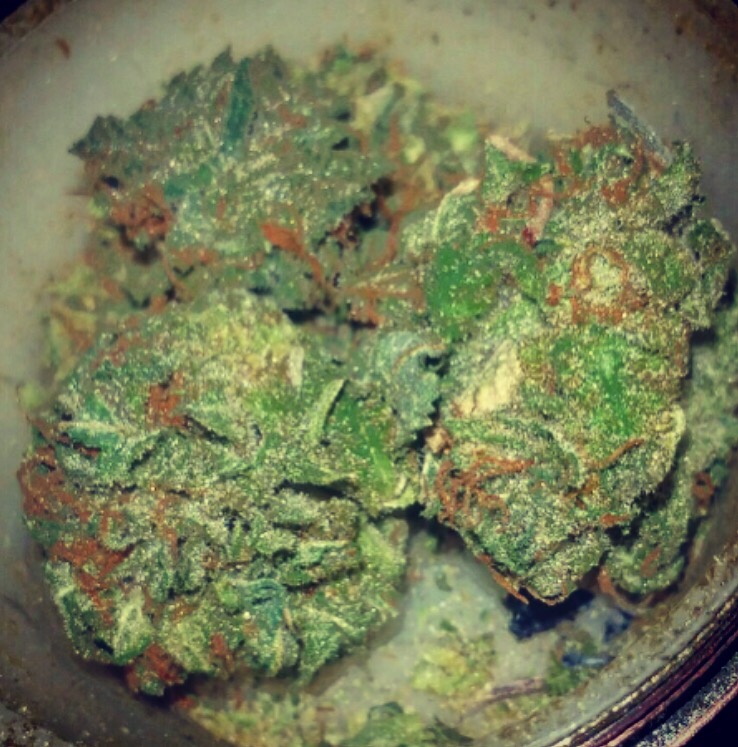By Leana Pardo
During the late 1840’s an influx of people from all over the world flooded the state of California. The forty-niner’s (named after the popular year of 1849) migrated to the West Coast searching of gold after native Californians discovered the shiny metal in the Earth. This period of time is now referred to as the Gold Rush. Fast-forward 160 years and America is experiencing yet another influx to California except this time it’s called the Green Rush. Same premise as the Gold Rush except people are migrating for the green, also known as marijuana, weed, grass, dope, ganga, herb, kush, etc. Marijuana has been around for years. Since its legalization in California and eight other states, people are scurrying like roaches to capitalize on it. This type of green has become the new gold! Investing in marijuana is now considered a smart business move.
After Colorado legalized recreational use of marijuana in 2012, their economy grew. According to The Washington Post, in 2015, the Colorado legal marijuana industry created 18,000 new jobs and generated $2.4 billion in economic activity (Ingraham, 2016). It’s no wonder American capitalists are rushing to these states to get their hands on the dispensary action. As more states aim to legalize, the demand for dispensaries will inevitably rise. But what happens to people that were already in the business before it became legal? The people before corporate investors and entrepreneurs showed face? The ones who have always known the medical benefits of marijuana like how it helps the terminally ill, people in chronic pain, people who suffer anxiety, depression and/or PTSD to name a few? What happens to the people that have been criminalized by the American government and have done time in prison for illegally selling a drug that is now legal in some form by 28 states? Are they still criminals? Can they go back to their profession now with ease? Or is the Green Rush only a business opportunity to the capitalists that simply jumped on the bandwagon after they saw dollar signs?
In recent years, the war on drugs has come under fire for disproportionately targeting minorities and low-income communities. There are some disconcerting facts around the criminalization of marijuana. Between the years of 2001 to 2010, 8.2 million marijuana arrests have been made and half of all drug arrests were not kingpin drug dealers but Americans that have a small amount of pot (Union, 2016). Imagine going to jail for having marijuana in Utah while your neighbors across the border in Colorado are puffing easily at a legalized cannabis cafe. Oh, Calamity! The joys of federalism. What’s even more unjust is that despite equal usage rates, blacks are 3.7 times more likely to get arrested for marijuana than whites are (Union, 2016). Now if we apply these facts to the Green Rush, the legal distribution of marijuana is not very exciting for the seasoned professionals that have been doing this for years. Unfortunately many provisions in legalized states can forbid people with felonies from getting licenses to sell.
Minorities have been the most negatively impacted from the war on drugs. These laws may seem a bit biased, because they are excluding many from this golden opportunity. California may soon deny continuation of business for middle-class entrepreneurs who are now legally dispensing marijuana who previously had a drug felony. The law states, “[the state] “may” deny a license to an applicant who has been convicted of an offense that is “substantially related to the qualifications, functions or duties of the business” he or she wants to operate” (McGreevy, 2016). In laymen’s terms, if one has been previously convicted of a drug charge–even if its marijuana–which is now legal, one can be denied the right to sell. And to confuse matters even more if one is selling marijuana without a license it’s considered illegal.
This has been an ongoing debate after the legalization of marijuana in Colorado. In Colorado, “Drug felons are allowed to work in the recreational pot industry after five years with a clean record if the crimes for which they were convicted wouldn’t be a crime under current marijuana law (Wyatt, 2015).” Some lawmakers do not agree like Rep Gordan Klingenschmitt (R-Colorado Springs) who said, “if we want to legitimize the industry, the last thing we want to do is put convicted felons in charge of running this industry.”
Currently half of the United States has some form of legal marijuana meaning as the legalization of marijuana progresses, lawmakers will be confronted with this issue. Should felons, previously convicted of dispensing marijuana, be allowed to get back in the business they know so well? Or should they still carry around the title of criminal for a crime that has been decriminalized? Understanding the war on drugs and how minorities were disproportionately targeted, shouldn’t this be a way for America to repent their wrongs? We could never give back the time people have spent in jail for a plant safer than alcohol. The least lawmakers could do is give them a shot at the Green Rush. It was their industry first. Besides, wouldn’t you rather support your local business?
Bibliography
Geiger, A. (2016, October 12 ). Support for marijuana legalization continues to rise. Retrieved December 10 , 2016, from Pew Research Center: http://www.pewresearch.org/fact-tank/2016/10/12/support-for-marijuana-legalization-continues-to-rise/
Ingraham, C. (2016, October 27). The marijuana industry created more than 18,000 new jobs in Colorado last year. Retrieved 12 10, 2016, from The Washington Post: https://www.washingtonpost.com/news/wonk/wp/2016/10/27/the-marijuana-industry-created-over-18000-new-jobs-in-colorado-last-year/?utm_term=.7db83c22dae2
McGreevy, P. (2016, May 13). New law could put some medical marijuana dispensaries out of business. Retrieved December 10, 2016, from L.A. Times: http://www.latimes.com/politics/la-pol-sac-pot-dispensary-felon-owners-20160513-story.html
Union, A. C. (2016). THE WAR ON MARIJUANA IN BLACK AND WHITE. Retrieved December 10, 2016, from American Civil Liberties Union: https://www.aclu.org/feature/war-marijuana-black-and-white
Wyatt, K. (2015, May 5). Dispute Over Felons In Pot Industry Flares At Statehouse. Retrieved December 10, 2016, from Denver CBS Local News : http://denver.cbslocal.com/2015/05/05/dispute-over-felons-in-pot-industry-flares-at-statehouse/


